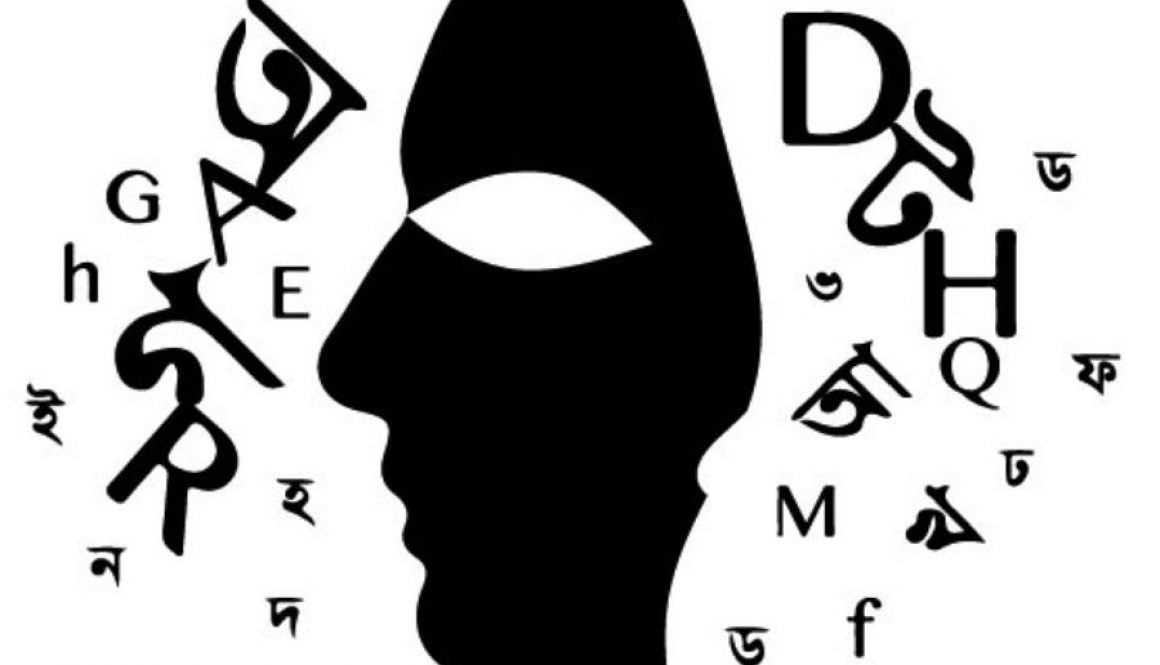In My Place/Betwixt First Language and Mother Tongue
Let me begin by stating a simple axiomatic truth: as an inheritor of an ancient civilisation, a colonial history, and its concomitant linguistic legacy, I speak in many tongues. Cradled in the culture of the Indian subcontinent, I have been nurtured by the words and songs of the tribes of the entire world as voyagers traversed my motherland, crossing centuries sailing down the Cape of Good Hope, across the Arabian Sea and the Red Sea, riding beyond the Silk Route and the Mediterranean, galloping down the Pamir Plateau and the dunes of the Gobi desert.
Historically, our relationship with imperial Britain has been fraught with blood and battle, commerce and exploitation. Post-colonially, however, our proficiency in the English language has proved to be an advantage in a fiercely competitive free-market economy. After an initial period of strong reaction against the use of English at all levels soon after the Liberation War of 1971, we now realise that knowledge of English means empowerment in every sphere of life in the new millennium. English is universally accepted as the cosmopolitan means of communication. Personal and social growth can be achieved by learning to use this other tongue as efficiently as our own mother tongue, Bangla.
However, I confess that from my earliest school-days, my own immersion in the English language and its literature had no pecuniary motive. Passion for the written word directed my imaginative and creative instincts. Essentially, to use the scientific jargon of today’s linguistic theorists, the semiotic sign system captivated me by the image and idea—the signification—locked within the written word and the audible sound. The magic of the alphabet and the tongue’s symphonic echo in my mouth promised a journey of sensory delights and tangible treasures. I still remember the euphoria of my seven-year-old self as I discovered the topsy-turvy world of Lewis Carol’s Alice in Wonderland and Alice Through the Looking Glass. The real and the absurd merged in the quirky limericks of Walter de la Mare, while vast oceans and foreign shores were discovered in R. L. Stevenson’s adventurous tales. At ten, my companions were Charles Dickens and Agatha Christie and Georgette Heyer. In Grammar School in my early teens, I trekked the entire globe of Shakespearean drama and soared high upon the epic sublimity of Milton’s verse. During summer holidays in my grandfather’s house in Dhaka, I secretly foraged in old, packed cabinets and fed on countless tattered, dog-eared British and American best-selling paperbacks. These were exciting years of growth and maturation, of an auto-didacticism of sorts. I devoured dusty tomes to salve the hunger of a primal urge. I found my heart’s language. I found my voice and vocation.
It is a truism that language changes and evolves through migration and acculturation. Individuals also grow and adapt to changing geo-political, economic, social and cross-cultural forces. I confess that now my first language is English because my childhood and teenage years were spent in countries far away and further westward geographically from my native space of Bengal. I confess that, today, my command of the English language has surpassed my command over my mother tongue, Bangla. My acquisition of words from the lexicon of Bangla has lagged behind my penchant for enlarging my English language vocabulary. But I love my mother tongue, and every day I try to replicate verbally the best of its discourse. I have gradually developed an ability to speak sophisticatedly in Bangla, and in public dialogue and social interaction I comfortably converse in a form of Bangla which exponents of discourse analysis would call “polite discourse”.
Linguistic studies tell us that an undeniable dialectic—sometimes fluid, sometimes tense—exists between a person’s first language and the mother tongue. How shall I define the first language? For me, it is the language in which I am most comfortable and can express myself with authority, clarity, dexterity, and fluency. It is a language in which I can accomplish stylistic nuance and play word-games; the art of punning, and the craft of poetry are inherent in my practice of the first language. In her long poem “Search for My Tongue” from her acclaimed collection Brunizem (1988), Sujata Bhatt writes:
I ask you, what would you do if you had two tongues in your mouth,
And lost the first one, the mother tongue, and could not really know the other, the foreign
tongue.
You could not use them both together even if you thought that way….
Every time I think I’ve lost the mother tongue,
It blossoms out of my mouth.
Of course, one must read this poem in its entirety to feel the force of Bhatt’s own intense tussle with English and her native Gujarati. The poem blends vernacular words into the texture of the central motif: the symbolic contrast between a flowering tree and language growth makes us enter the cultural and linguistic terrain of postcolonial discourse. Paradox and dislocation unite to thrust us into open contestation with empire, imperialism, and colonialism.
Similarly, in Upamanyu Chatterjee’s debut novel, the bildungsroman English, August: An Indian Story (1988), much of the protagonist’s postcolonial angst revolves around his complicated relationship with language, starting with his Darjeeling English-medium schooling to his relaxing interludes with Marcus Aurelius and modern Bengali classics like Patherpanchali and later as an officer in the elite Indian Civil Service, stationed in small backwater towns. Chatterjee’s narration opens dramatically with a scene in New Delhi, one hour past midnight. Agastya, the protagonist, and Dhrubo, his Bengali chum from school, are bawdily recalling the Darjeeling days: “ ‘Amazing mix , the English we speak…Urdu and American’, Agastya laughed, ‘…I am sure nowhere else could language be mixed and spoken with such ease…And our accents are Indian, but we prefer August to Agastya’.” The narrator in Chatterjee’s novel comments that in his schooldays, Agastya suffered from bouts of identity crisis, envious of the white-skinned Anglo-Indians with their Tibetan girlfriends: “[Agastya] then blurted out he wished he had been Anglo-Indian, that he had Keith or Alan for a name, that he spoke English with their accent. From that day his friends had more new names for him, he became the school’s ‘Last Englishman’, or just ‘Hey English’, …and sometimes even ‘Hello Mother Tongue.’ “
On my part, I confess that with a first name lovingly chosen by my mother from the Old Testament (which is also part of the Holy Quran), and attached to my Arabic surname, I feel I belong to all the people of this world. I have found a namesake in every continent on earth. Growing up, I suffered no such identity crisis as felt by Agastya. But, sadly, as a teenager in England, I was the object of racist comments, especially targeted by white blue-collar Britons offended by my sophisticated accent and superior vocabulary. At the elite St Martin-in-the-Fields Grammar School in Tulse Hill, London, during the tumultuous sixties, 1967-1969, my intellectual goals and commensurate scholastic points achieved gave me sufficient self-esteem to make the brown colour of my skin irrelevant in my journey towards self-actualisation. Today, I can affirm without undue hubris that I speak English with panache and style, as flawlessly as any native speaker of the Queen’s English. In my professional capacity, I am often amused by the ambivalent stance of some white men. Specifically, to wit, in England, in early 1985, on the steps of the Brotherton Library in Leeds, the tall, lanky youthful librarian quizzed me nervously as he respectfully led the way down to the scholar’s corral, “Where did you learn your English?”
Years later, at a cocktail party at his residence in Dhaka, the British High Commissioner of middling height stopped me, the new Chair of the Department of English at University of Dhaka, in mid-sentence. With blazing eyes and a faintly belligerent tone of voice, he asked, “Where did you learn your English?”, swiftly proceeding to deliver a speech on his own academic achievements and present ambition of doing a doctorate on Colonial Bengal after the Battle of Plassey. I sipped tea with an attentive half-smile, and wondered to myself, “Should I be flattered, or insulted? Is he intimidated, or impressed by a demure Bengali woman in a black cotton sari?” I chose not to respond, not to enter into a conversation fraught with ambiguous undercurrents. I made eye contact with a colleague across the hall, and with a courteous nod to His Excellency, moved on to less tense dialogic interaction.
Significantly, the conscious political question I ask myself today is, “Where do I choose to stand with regard to my bilingualism?” In response, let me quote a verse from Nissim Ezekiel’s poem “Background, Casually” which best expresses my ideology:
I have made my commitments now.
This is one: to stay where I am,
As others choose to give themselves
In some remote and backward place
My backward place is where I am.
Thus, now, in this place of mine in Bangladesh, rooted in my native clay, I choose to converse serenely in Bangla, but I rant and rave and rationalise and adumbrate and fraternise, and synthesise, in English.
I have taught Romantic Poetry for a few years to freshman and sophomore students when I myself was a fresh, young lecturer in the Department of English at the University of Dhaka. In the classroom, I have moved effortlessly from Grasmere to Xanadu and have held up the lamp for my students so that, in its halo, they too can see the wonder in the commonplace and discover the beauty of the intense, passionate songs sung by Blake, Wordsworth, Coleridge, Shelley, and Keats. Manfred and Childe Harold’s Pilgrimage imprinted the image of the Byronic homme fatale on my mind, and my retina still holds the silhouette of the melancholy, solitary exile wandering on moonlit, distant shores. I have read aloud a great many poems in class to arouse in the young men and women a passion equal to mine for the exquisite delight of harmonious sound, the spoken word, and the image.
At that time, the Bangla script was as unintelligible to me as cuneiform. But I am proud to declare that, today, I have become proficient in reading and translating my mother tongue. I have discovered in myself an aptitude for translating Bangla short stories into English, and the thought of translating longer works of fiction into English is tantalisingly appealing. Bengal is in my blood, and the literature and culture of Bengal is my heritage. The great songs and folk-tales of the Gangetic delta were gifts given to me by my parents in my childhood, and the themes of the great novels were explained to me patiently by my mother to assuage my curiosity. I knew the names of Rabindranath and Saratchandra and Bankim and Buddhadev even before I could spell in any language. I remember my mother’s clear sweet voice singing Tagore songs; the lyric poetry of Bengal subliminally seeped into my consciousness.
Today, I yearn to write in Bangla with the same heartfelt ease as I write in the English language. But, as is Nature’s way, after failing to learn to write Bangla in childhood, the adult hand struggles to find competence in writing the Sanskrit Brahmi script.
It is a new challenge that I must undertake in my twilight years. It is a goal I must reach to bridge the gap that exists betwixt first language and the mother tongue. It is a journey to validate my place in my motherland.


